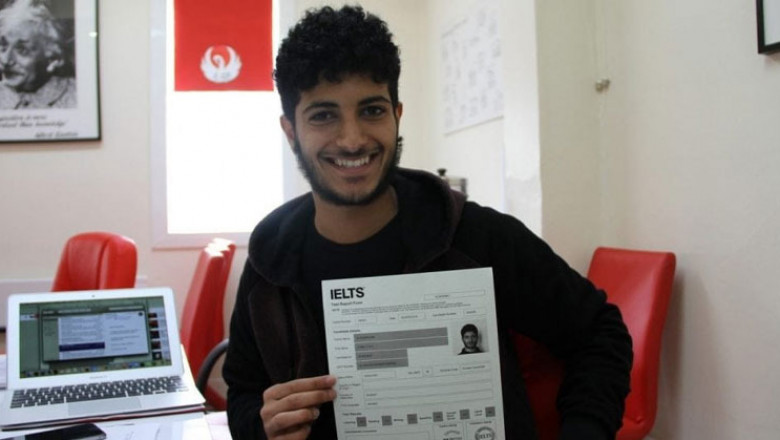Top Tips for IELTS Exam How to prepare for IELTS Test
If you are planning to study in the UK, you need a high score on the IELTS exam. The exam aims to test your English proficiency and has Studying abroad can be stressful and exciting at the same time, especially when it comes to studying in the UK. The United Kingdom is one of the popular and prime destinations for overseas students for pursuing their higher studies. The education system of British universities is globally recognized. The top-notch UK universities require an English proficiency test score from international students whose first language is not English. While preparing for IELTS, students often ask what is the easiest to pass IELTS?
Students need to meet the requirements to secure admission at UK universities. One of the great things about UK universities is if you cannot get enrollment in one department, you can immediately apply to another one. If you are planning to study in the UK, you need a high score on the IELTS exam. The exam aims to test your English proficiency and has four components, and each needs to be taken seriously to enter a top university. The four sections are Listening, Reading, Writing, and Speaking.
What is IELTS
International English Language Teaching System (IELTS) was founded by the British Council in the year of 1989. Universities in countries like the United Kingdom, United States, Canada, and Australia accept the IELTS score. There are 1200 IELTS testing centres in all 140 countries. Tests are offered 4 times a month which means 48 times a year. Generally, IELTS costs around $225, although the price can be varied depending on the location of the test centre.
IELTS is highly popular for its paper-based among students but because of the ongoing pandemic, students can sit for a computer-based test as well. The IELTS test is not only accepted in overseas universities but also useful to migrate to a new country, governmental organizations, and companies in the UK, US, Canada, and other English-speaking countries.
Classification of IELTS Test
As the article mentioned prior that IELTS is classified into four different skills. They are:
1. IELTS Reading:
The reading part is highly important for the test seekers, as in this test they need to demonstrate their reading proficiency along with their patience level. Additionally, this section is specially designed to test the various surface of reading skills. For example, understanding the main idea after reading a passage, summarization, and recognizing the author’s point of view and opinion. Students need 40 questions from 3 different passages.
In addition, the reading component has three extensive and detailed passages. These passages were culled from a variety of sources, including academic books, news and articles published in newspapers, periodicals, and academic journals. Furthermore, because the academic IELTS is only for prospective students, these sections keep the university level of difficulty. The following are some reading tips for IELTS:

- Familiar with reading Questions: Students will find approximately 14 types of questions in the reading test. Some question types have responses that are presented in a sequential manner, while others do not. As a result, if students are familiar with the questions prior to taking the exam, they will do well on it.
- Scanning and Skimming: It is highly essential for the students to have a clear idea about how to skim and scan a passage. Moreover, it is necessary to know to get a good score on a test like IELTS. Skimming a passage involves reading it quickly to gain a rough notion of what it’s about. Scanning, on the other hand, refers to one’s ability to quickly identify information and has nothing to do with comprehension of the passage.
- Need not to Understand the Full Content: In the IELTS test, it is not required to understand the full content. Students’ job is to pick the correct answer from the reading passages. Only two sorts of questions (header matching and title selection) may necessitate further information.
- Boost Your Vocabulary Knowledge: Students often ask ‘how can I score 8 in IELTS reading?’ Vocabulary skill is one of the primary reasons why students do not achieve good reading scores. Furthermore, students must understand that mastering vocabulary is more than merely memorizing new words. Learners must understand when and how to utilize certain words.
- Pick Out Your Lacking: Students will not be able to improve their flaws if they are unable to identify them. As a result, students should spend time reviewing their work.
2. IELTS Listening:
IELTS listening is also classified into four different sections just like the reading section. It’ll be a 30 minutes test and students will get extra 10 minutes at the end of the test to transfer their answers to the writing pad. IELTS tips for listening skills are as followed:
- Listen Carefully: The students will be able to listen to the recording only once, during the test. There isn’t going to be a second chance. As a result, students must practice taking a whole listening test while simply listening once. When students are honing their skills and expanding their vocabulary, they may need to listen more than once, which is perfectly acceptable throughout the practice session.
- Enlarge Your Guessing Power: There’s a good chance that students won’t grasp the recording completely. In that situation, they’ll have to make a guess. Furthermore, students should not leave any vacant boxes; instead, they should guess the word and write it in the box.
3. IELTS Writing:
In the writing section of IELTS, students’ English language accuracy and grammatical sense will be judged. The most difficult part of this section is to give words to your thoughts, beliefs, and ability to understand the task. IELTS tips for writing tests are given below:
- Writing Task 1: Only 33% of overall writing scores are met by it. Students will be graded on task completion (25%) coherence and cohesion (25%) vocabulary (25%) and grammar (25%).
- Writing Task 2: It corresponds to 66% of total writing scores. This task requires students to produce an academic/formal essay. Opinion, discussion, advantages and disadvantages, argumentative, and other forms of essays are common.
4. IELTS Speaking:
The speaking element of the IELTS exam is divided into three parts. In all three stages of the interview, the interviewer evaluates the interviewee’s speaking ability. The applicant’s fluency, grammar, vocabulary, and coherence will be evaluated by the interviewer. The IELTS tips for the speaking test are divided into three phases:
- Phase 1: The examiner will introduce him/ her at the very beginning of the test and will expect the same from you. Later on, the examiner will ask some primary questions to break the ice between you two. The topics can be related to your home, office, school, neighbourhood, etc.
- Phase 2: The examiner will provide you with a task card and you will speak for certain minutes on the topic written on the card. You’ll have 1 to 2 minutes to speak on this subject. You will have one minute to prepare before speaking.
- Phase 3: The last phase will last for 3- 4 minutes. The examiner will ask some additional questions related to the previous phase. You’ll be answered more abstractly in this phase.
Tips for IELTS Exam Preparation

- Listen to conversations, especially English bulletins. Listen to speeches and note them down on paper. You also need to attend group discussions and practice listening to more people at a time. This practice will go a long way in helping you crack the listening section.
- Practice reading long articles, stories, and essays to score well in the reading section. Note down whatever you feel is important. Practice comprehension. You can attempt all questions as there is no negative marking.
- Practice writing essays to clear the writing section with ease. Your essays also need to be error-free, so practice grammar. Use formal language and stick to your argument.
- You need to be fluent to get a good score in the speaking section. Practice speaking at home and let your pronunciation be clear and confident. Go well prepared as you need to interact live with an invigilator.
Tips to follow on the day of the IELTS exam
- The exam requires you to concentrate. So eat well and make sure you had enough rest before the exam.
- Wear clothes that you are comfortable with.
- Arrive early to avoid last-minute tensions. You need to visit the test centre once before the actual exam date so that you are sure about the exact place.
- The exam has no breaks, so make sure you have used the restroom before entering the exam hall.
- Do not take your phones or any other electronic gadgets.
- Do not forget to take your ID.
- Follow all the instructions given before the start of the exam.
- Be calm and confident.
To sum up, IELTS does not have a pass mark like some other standardized tests. You’ll be scored on the basis of your English skills and proficiency. Cracking the IELTS exam, enter a top UK university, and have a great career ahead! If you need any further information regarding IELTS feel free to contact us.















